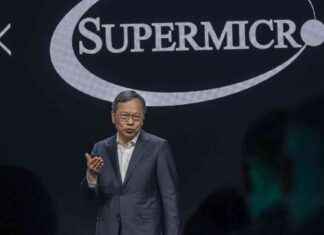In one of Sunday’s Super Bowl ads — viral since Wednesday — actress Melissa McCarthy drives along a picturesque road, fielding calls from an unknown man begging for her star power.
“Hey, Melissa,” he says. “The whales need your help.” So, he says, do the trees, the ice caps, and the rhinos. Her attempts to save all do not go well.
The ad, for a new Kia hybrid, operates on several levels, but the most fascinating is its use of a star to skewer the self-importance of stars. It’s an interesting capper to a week in which celebrity itself, as currency, began crumbling.
Last Tuesday, a scathing countersuit was filed against Johnny Depp by his longtime money managers, claiming their client leveraged his fame against crushing debt. It’s hard to imagine, even five years ago, any civilian — by default, a lesser being — so publicly calling out an A-list celebrity, but here we are.
Among such humiliating details as Depp’s $30,000-a-month wine habit, his “numerous other vices” and his stated willingness to “make some ludicrous deals to refill the glass and make it f–king overflow!!!” are brutal assertions about Depp’s true character.
“Depp and his new CPA want to blame [us] for Depp’s selfish, reckless and irresponsible lifestyle, and had the gall to file a public complaint filled with vile lies and frivolous allegations,” the suit reads. “In Depp’s self-centered world, ‘no good deed goes unpunished’ . . . Depp caused his own financial waste.”
Rob Lowe became a subject of universal scorn last week when his want ad for an assistant went viral. Among the requirements: “Ensure the client” — Lowe — “is fed and has coffee throughout the day.” Also, Lowe’s assistant must be able to lift 25 pounds of unspecified weight, never assume anything, be willing to drop everything to travel with Lowe and shadow him everywhere, and make sure the Jacuzzi and the masseuse are ready to go at a moment’s notice, all for $70,000 a year.
Clearly embarrassed, Lowe wouldn’t cop to the ad. His rep, however, told TMZ that “we can confirm coffee is his No. 1 priority in life.”
Chris Pratt was due to fully arrive as a romantic leading man with the December 2016 release of “Passengers,” followed by a Vanity Fair cover — until he and his wife, actress Anna Faris, were outed as having abandoned their animals. In 2011, they gave away their cat of 15 years on Twitter. Then, in November, their adopted dog was found emaciated and wandering the couple’s neighborhood in North Hollywood. Most damning was a selfie that Faris had posted of herself gazing lovingly at the since-abandoned Chihuahua.
The membrane between the actual person and the cultivated star has existed as long as celebrity itself, but never before has it been so thin. Social media, of course, has allowed us to see behind the curtain for quite some time, but it’s also democratized celebrity to the point where it no longer matters the way it used to, and probably never will again.
The only people who have yet to realize this are most stars themselves. Madonna, because she’s Madonna, thought she could curse profusely and make a crack about “blowing up the White House” at the Women’s March, yet the resulting firestorm only took attention away from the non-famous women marching.
A good portion of America was alienated by Meryl Streep’s Golden Globes speech, which was spent vivisecting Donald Trump. Who really doubts the Oscars will be more of the same? Who — no matter your politics — wants to sit through four hours of wealthy, largely uneducated beautiful people lecturing us?
For a long time in the ’80s and ’90s, there was no bigger movie star in the world than Tom Cruise, and he is the patient zero of this phenomenon. After firing his longtime publicist in 2004, the mask came off, and suddenly Cruise was jumping on Oprah’s couch and calling Matt Lauer “glib” to his face and marrying Katie Holmes and talking up Scientology. He looked and sounded like a crazy person, and it was the beginning of the end of our magical thinking, of imbuing celebrities with special powers simply by dint of their fame.
This ongoing loss owes as much to technology and the 24-hour news cycle as our concurrent hunger for authenticity. Who looks more miserable on a daily basis than Oscar-winning, super-wealthy movie star Ben Affleck? That discordance — the notion that if anyone should be happy, it’s him — speaks to all of us. It’s the human condition writ large.
It’s why, more than 50 years later, we’re still so fascinated with the Kennedys — the né plus ultra of image versus reality, secrets spilling out after all this time. The Oscar-nominated film “Jackie” gives us a first lady the public never saw, but historians tell us existed: a deeply traumatized widow wandering the White House at night, chain-smoking and drinking vodka, admitting to her priest that her husband all too often let her down.
We’ve evolved. We realize high-profile marriages, even presidential ones, are responsible only to the people in those marriages. It’s why, when Melania Trump announced she’d be staying behind in New York to see her and Donald’s son, Barron, through the school year rather than immediately joining her husband in the White House, there was no national hand-wringing over what kind of message this sends to our youth, or the world. Instead, we shrug and say, “So what? It works for them.”
We have, it seems, finally realized that stars really are just like us. And we’re better off for it.
Our editors found this article on this site using Google and regenerated it for our readers.





